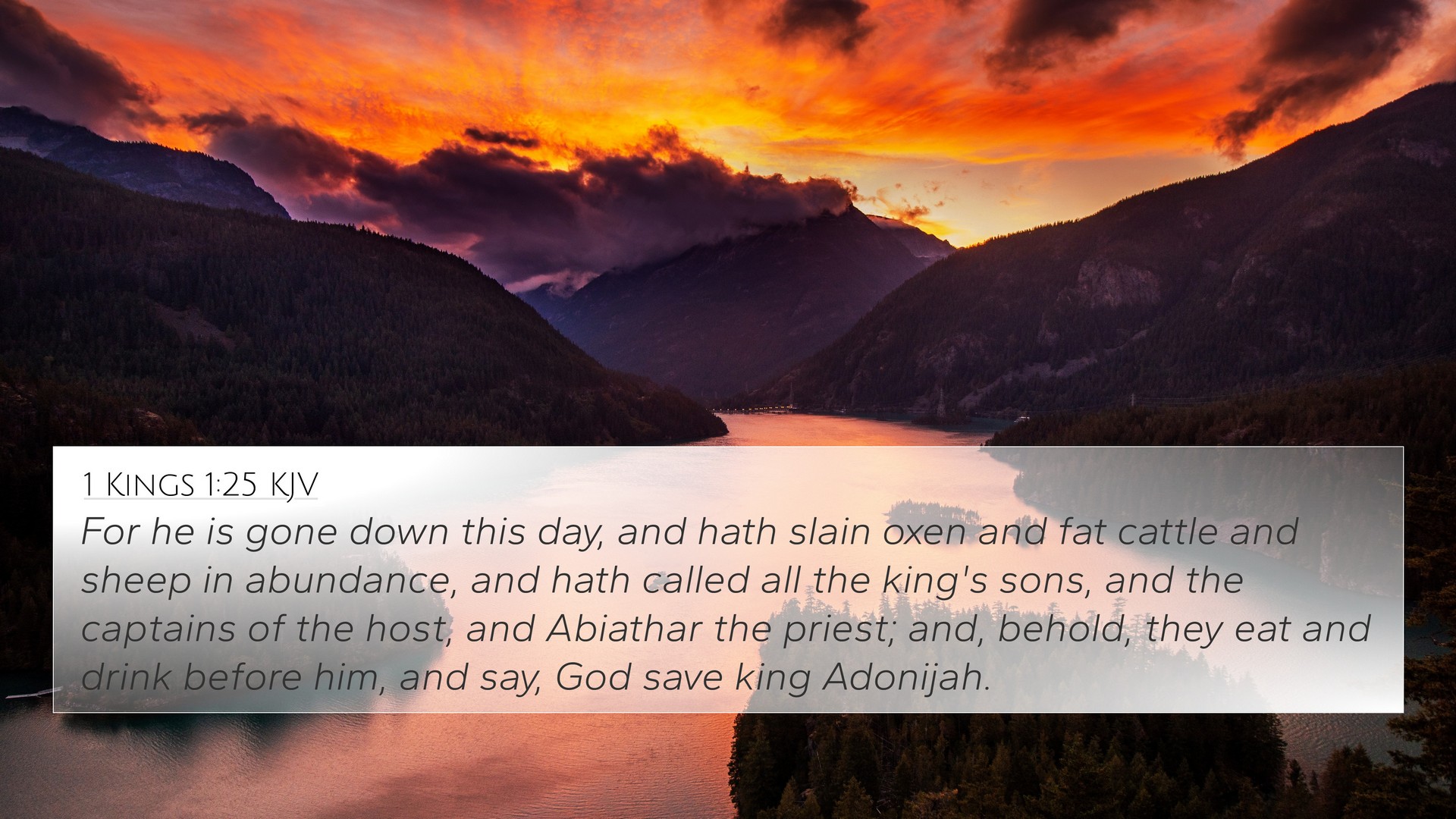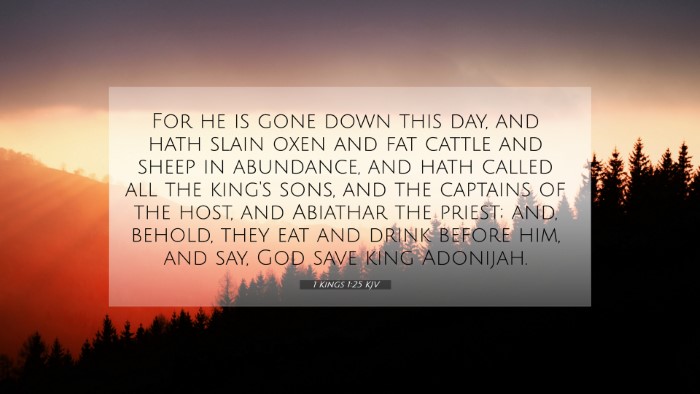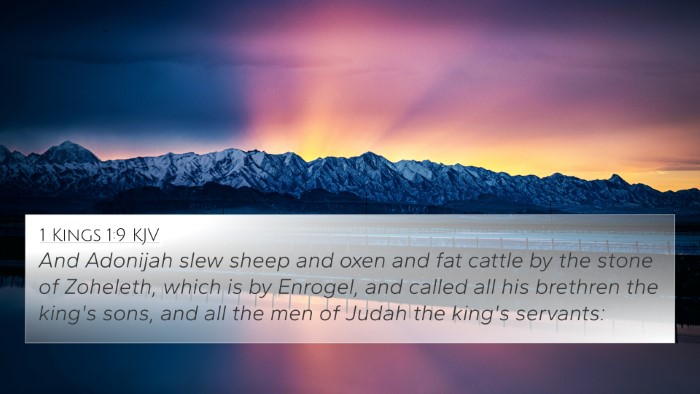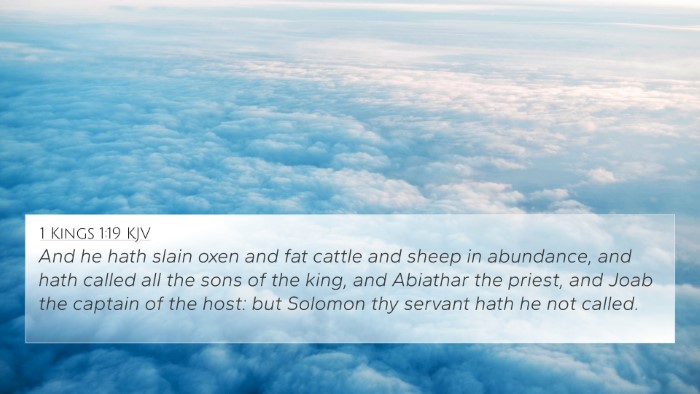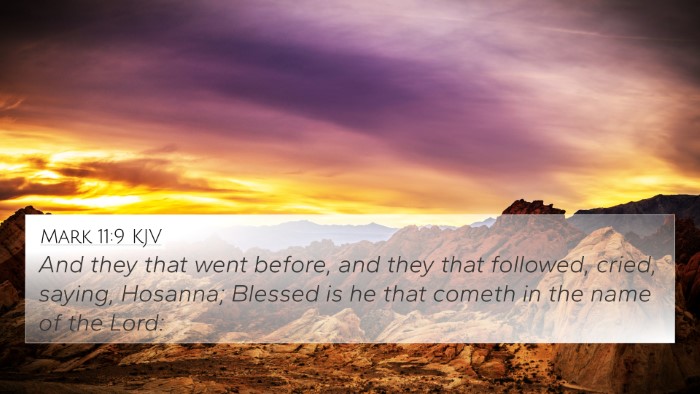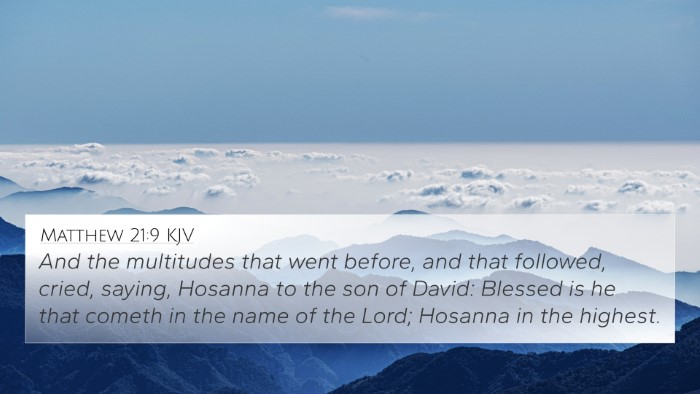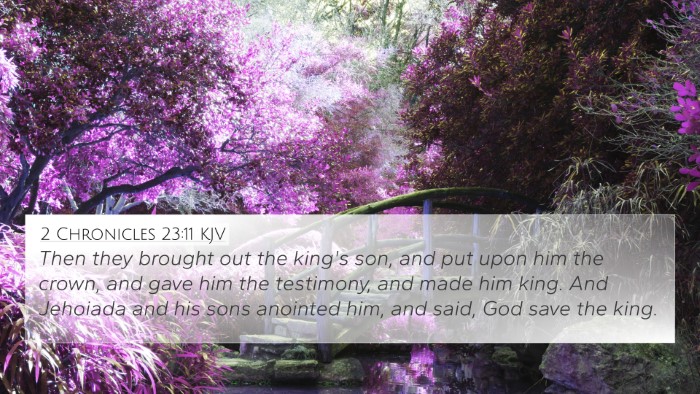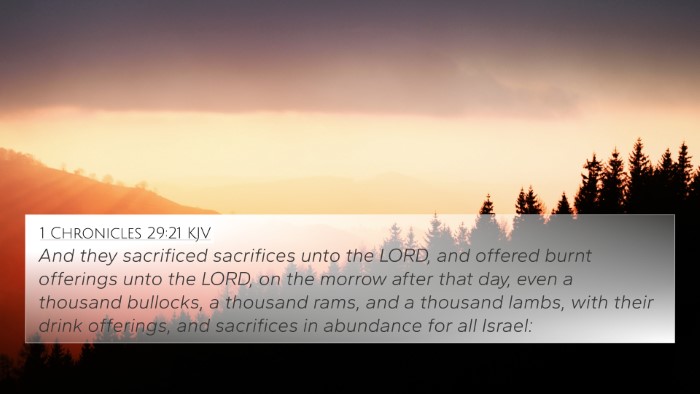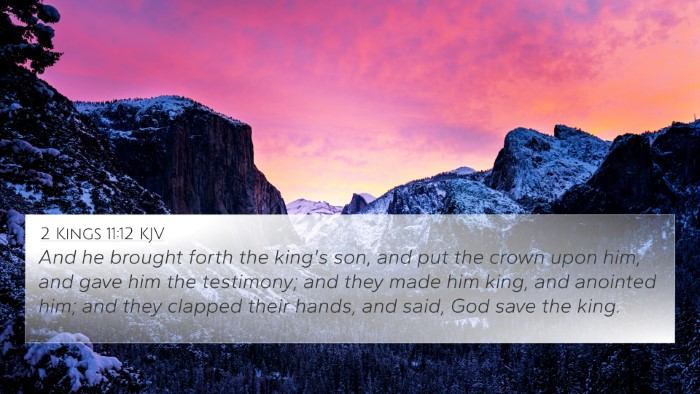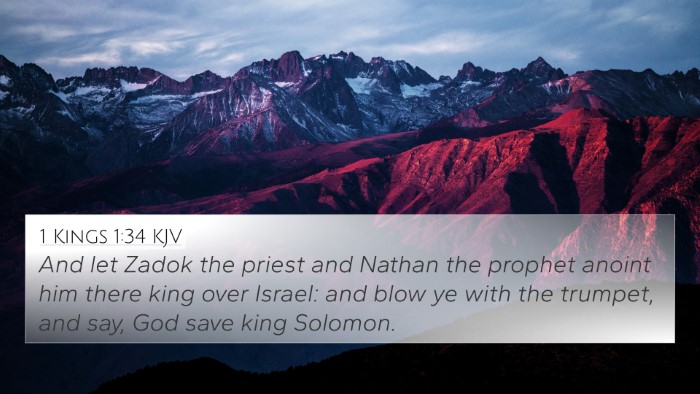Understanding 1 Kings 1:25
Verse: "For he is gone down this day, and hath sacrificed oxen and fat cattle and sheep in abundance, and hath called all the king's sons, and the captains of the host, and Abiathar the priest: and, behold, they eat and drink before him, and say, God save king Adonijah." - 1 Kings 1:25 (KJV)
Summary of the Verse
This verse describes a pivotal moment in the succession of Israel's monarchy. Adonijah, one of King David's sons, asserts himself by declaring himself king while David is still alive. He gathers his brothers, military leaders, and key priests to celebrate his ascendancy, suggesting a divided loyalty amongst the Israelites.
Interpretation from Commentaries
- Matthew Henry: Henry emphasizes the audacity of Adonijah's actions, noting how he proceeds to make an attempt at kingship in an unorthodox manner. He observes that Adonijah's lavish feast and public declarations are signs of rebellion against the rightful king, David, and indicates a disregard for God's appointed order.
- Albert Barnes: Barnes provides insight into the political dynamics of the time, interpreting Adonijah’s feast as a strategic move to gain popular support. He reflects on the implications of this usurpation for the kingdom, warning that such actions create perilous splits within the family and the broader nation.
- Adam Clarke: Clarke highlights the significance of the sacrifices made by Adonijah, suggesting they were offerings to secure favor, probably both with God and with the people. He also points out the importance of the people gathered at the feast, noting their role in the power dynamics at play.
Connections Between Bible Verses
This verse connects with several others that illuminate the themes of kingship, rebellion, and divine ordination:
- 1 Samuel 16:1: God's command to anoint David as king establishes the rightful order contested by Adonijah.
- 2 Samuel 15:10: Absalom’s rebellion reflects similar themes of insurrection within the royal family.
- 1 Kings 2:15: Adonijah's motives are further clarified as he seeks power despite clearly understanding the divine mandate.
- Proverbs 11:14: The wisdom of consulting counsel as seen in the folly of Adonijah foreshadows disastrous outcomes of his unwise decisions.
- Romans 13:1: Reflects on the divine institution of authority, illustrating the importance of adhering to God’s chosen leaders.
- Matthew 12:25: A reminder of the divisiveness that can come from internal conflict, much like the divisions in the house of David.
- Galatians 5:17: Highlights the struggle of flesh against spirit, applicable in the context of choosing to obey God’s will or pursue personal ambition.
Thematic Bible Verse Connections
Adonijah's actions pose significant questions about authority, God's sovereignty, and human ambition. The themes raised resonate with many biblical narratives:
- Leadership and Usurpation: Notable instances include Saul's rise and fall (1 Samuel 10-31) and Absalom's civil war (2 Samuel 15-18).
- Divine Authority: God's ultimate authority over kingship is evident in His choice of David (1 Samuel 16:13) and the preservation of the Davidic line.
- Consequences of Rebellion: Scriptural examples illustrate that rebellion against God's chosen authority leads to dire consequences, as seen in 1 Samuel 28:16.
Tools for Bible Cross-Referencing
To deeply explore these connections, various tools and methods can assist in cross-referencing and thematic study:
- Bible Concordance: Use a concordance to find verses related to specific themes or keywords.
- Cross-Reference Bible Study: Employ resources that offer in-depth cross-references for detailed study.
- Comprehensive Bible Cross-Reference Materials: Utilize academic tools for exhaustive comparative analyses, including thematic studies across scripture.
Conclusion
1 Kings 1:25 serves as a critical touchpoint for understanding the complexity of biblical leadership and the flammable nature of ambition. By examining inter-Biblical dialogue and utilizing a range of cross-referencing techniques, readers can better grasp the implications of this narrative on the overarching themes in scripture.
